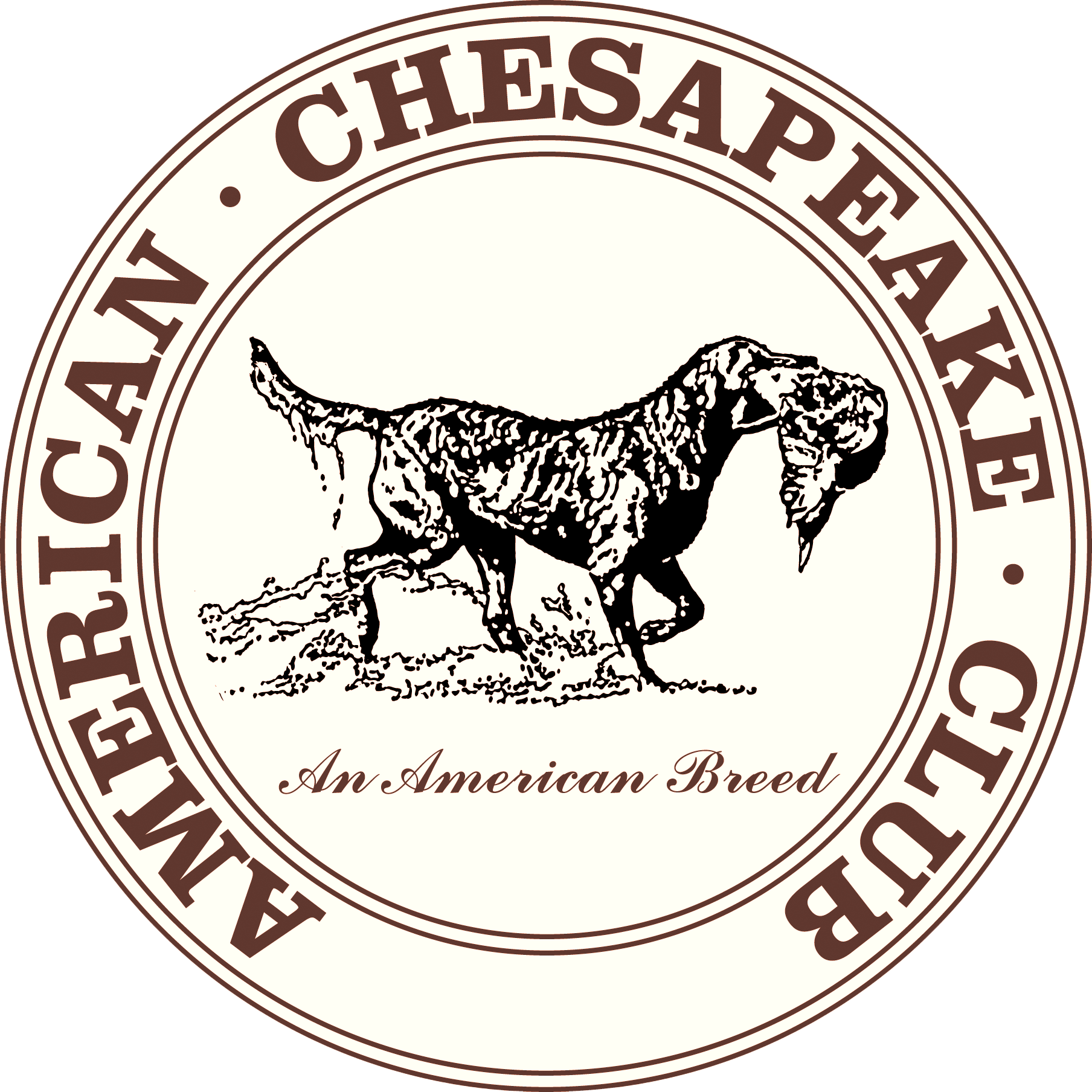Bylaws
In order to maintain section formats and the page numbers referenced in the Table of Contents, Adobe Acrobat Reader is required to view the bylaws.
To all ACC Members: – Below are the newly revised and adopted ACC Bylaws. There are some changes to the general format which follow the organization of California non-profit corporation law where ACC is incorporated. The revision includes a table of contents to make it more user-friendly, along with many improvements to benefit the effective operation of the Club. Some changes were dictated by legal concerns and others by AKC, while still more resulted from member suggestions and analysis of practical problems that arose under the current Bylaws.
Code of Ethics
Love and respect of the Chesapeake Bay Retriever is implicit in membership in the American Chesapeake Club. Therefore, all members agree to foster the goals set forth in the Code of Ethics.
I. Responsibilities of Members
a. Read and familiarize yourself with the American Chesapeake Club Breed Standard for the Chesapeake Bay Retriever that is approved by the American Kennel Club. Support and abide by the rules of the American Chesapeake Club and the American Kennel Club.
b. Appreciate the unique nature of the Chesapeake Bay Retriever and try to develop the characteristics this dog has inherited through selective breeding (intelligence, desire to mark and retrieve with style, love of water, and keen scenting ability).
c. Assume the responsibility of proper feeding, maintenance, health care, and training at all times.
d. Always conduct yourself in a manner which will reflect credit on yourself and the breed. Refrain from public criticism or malicious degrading of others or their dogs, whether in person, on social media, or otherwise.
e. Never knowingly sell or place a Chesapeake Bay Retriever with unethical persons or those who would not provide proper and humane care to the dog. Refuse to sell any Chesapeake Bay Retriever to any pet shop or to any wholesale dealer in dogs.
f. Should you become aware of the mistreatment, abuse, or need for relocation of any Chesapeake Retriever, make every effort to be of assistance by notifying the breeder of the dog involved, the local authorities, and helping in any other way in which you are able.
II. Responsibilities of Breeders/Brood Bitch/Stud Dog
The ACC Board of Directors strongly recommends that all breeding stock be free of Hip/Elbow Dysplasia, Progressive Retinal Atrophy (PRA) in addition to all hereditary eye diseases, Exercise Induced Collapse (EIC), and Degenerative Myelopathy (DM) – tested Normal or otherwise.
a. Do not breed Chesapeake Bay Retrievers that are not registered by the American Kennel Club or by kennel clubs recognized by the American Kennel Club.
b. Strive in each breeding to improve the breed according to the ACC Breed Standard. Conscientiously plan each breeding based on parents of appropriate temperament, appearance, and other desirable qualities.
c. Be aware of genetic defects which can be harmful to the breed. When breeding, endeavor to select animals that will reduce the incidence of genetic problems while enhancing the positive attributes and abilities of the breed. Be open with all persons interested in the welfare of the Chesapeake Bay Retriever and discuss possible physical or temperament defects in your own stock.
d. Do not breed any bitch which is not mature (never before the second heat) and in good health. Do not allow puppies to go to their new homes until at least 7 weeks of age.
e. Act responsibly toward all puppies produced by your brood bitch or stud dog for the lifetime of the puppies. (Recommend that the breeder encourage the owner to contact him if he can no longer keep a dog at any time in the dog’s life.)
f. Understand that written contracts are strongly recommended for all transactions, such as sales, guarantees, co-ownerships, breeding rights agreements, bitch leases, stud services, etc. Keep accurate records and pedigrees and give new owners registration papers or forward as soon as possible.
g. Use and promote the use of the American Kennel Club non-breeding registration on pet quality puppies which are sold or placed by you.
